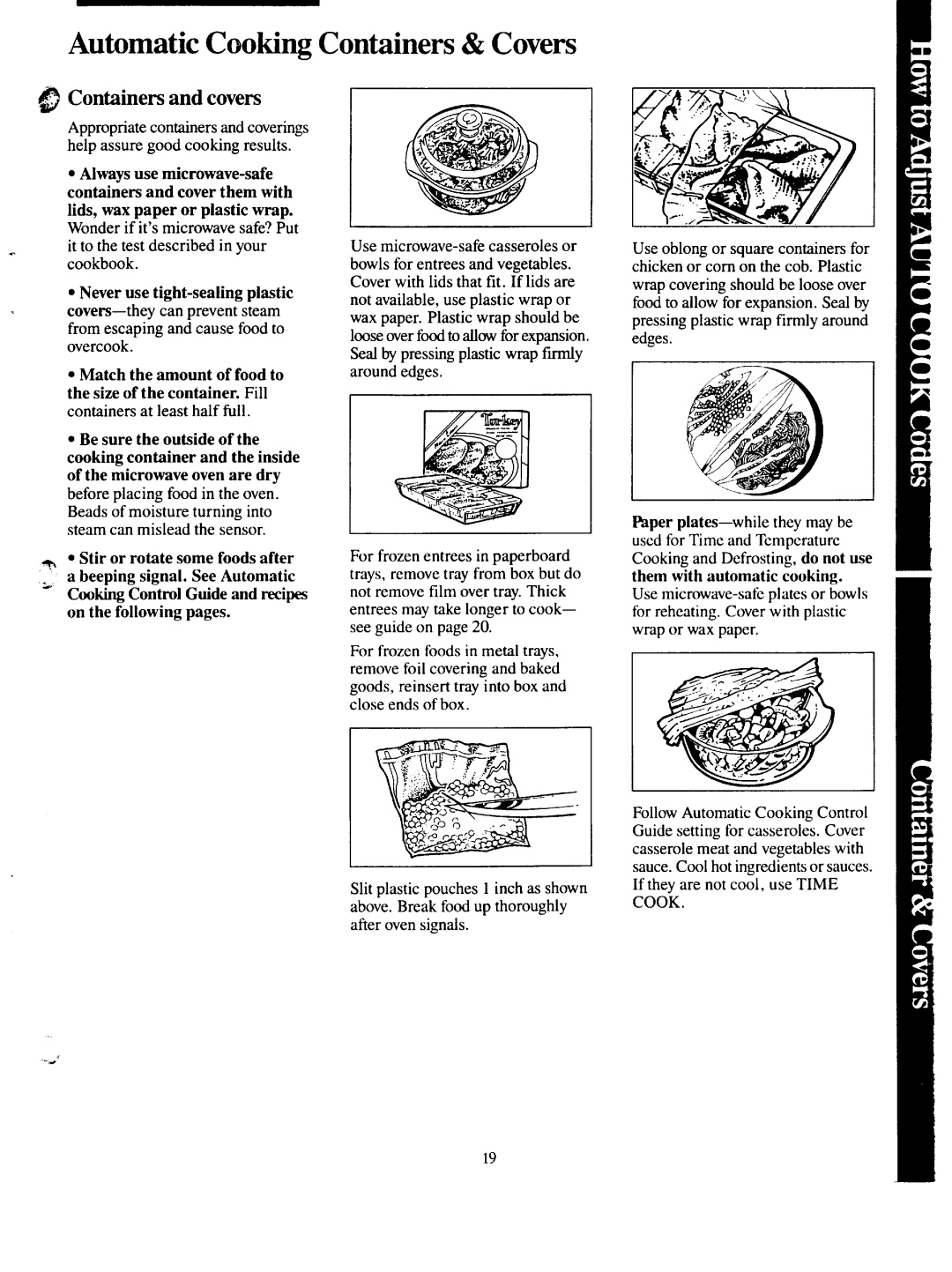
Automatic Cooking Containers & Covers
Containers and covers
Appropriate containers and coverings help assure good cooking results.
●Always use
●Never use
●Match the amount of food to the size of the container. Fill containers at least half full.
●Be sure the outside of the cooking container and the inside of the microwave oven are dry before placing food in the oven. Beads of moisture turning into steam can mislead the sensor.
Use
Use oblong or square containers for chicken or com on the cob. Plastic wrap covering should be loose over food to allow for expansion. Seal by pressing plastic wrap firmly around edges.
I%per plates—while they maybe
used for Time and Temperature
●Stir or rotate some foods after a beeping signal. See Automatic Cooking Control Guide and recipes on the following pages.
For frozen entrees in paperboard trays, remove tray from box but do not remove film over tray. Thick entrees may take longer to cook— see guide on page 20.
For frozen foods in metal trays, remove foil covering and baked goods, reinsert tray into box and close ends of box.
Cooking and Defrosting, do not use them with automatic [ooking.
Use
Slit plastic pouches 1 inch as shown above. Break food up thoroughly after oven signals.
..
Follow Automatic Cooking Control Guide setting for casseroles. Cover casserole meat and vegetables with sauce. Cool hot ingredients or sauces. If they are not cool, use TIME COOK.
19
